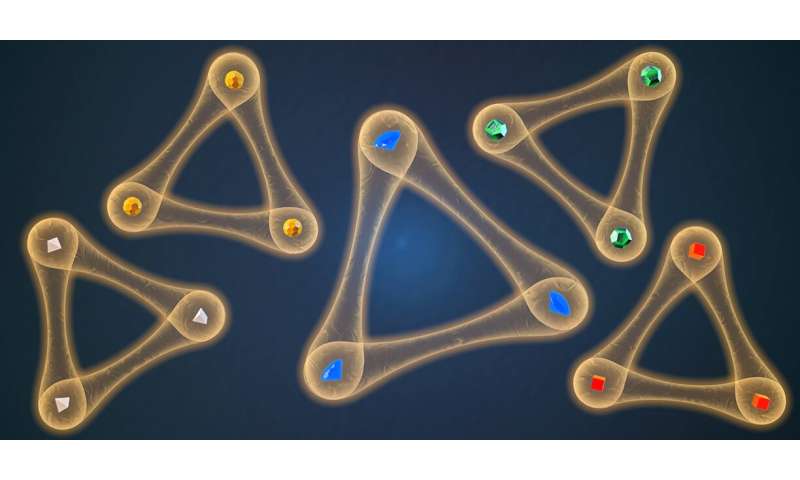Best of Last Week: Living robots, the limits of universality, and switching to 1% milk

It was another good week for physics as a combined team from Rice University and Vienna University of Technology found billions of quantum entangled electrons in a "strange metal." The ytterbium, rhodium and silicon compound tests provided the strongest direct evidence to date of entanglement's role in bringing about quantum criticality. And a team with members from the National Institute of Standards and Technology and the University of Colorado Boulder tested the limits of universality in an ultracold system, and discovered Efimov trimers with sizes that were significantly larger than what the universal theory predicts. Also, an international team subjected a water sample to 20 times normal Earth gravity within ESA's Large Diameter Centrifuge and found the typical timescales of wave interactions and dissipation did not depend on the wave frequency, as predicted by theory.
In technology news, a combined team of engineers from the University of Vermont and Tufts University designed living robots on a UVM supercomputer—they scraped cells from frog embryos and assembled them into entirely new programmable life forms. And a California startup called MoJo Vision unveiled a smart contact lens that delivers an augmented reality display in a user's field of vision. Also, a team at Stanford University demonstrated a "PigeonBot" with wings made with 40 real feathers. Their system also featured a novel type of controller that allowed a pilot to control the bot using their wrists and fingers. And a team at IMEC showed that commercial touchscreens can be used as reader interfaces for capacitive coupled data transfer using a 12-bit, thin-film identification tag.
In other news, a team of researchers working on UCLA's Galactic Center Orbits Initiative discovered a class of strange objects near the Milky Way galaxy's enormous black hole—they described them as looking like gas and behaving like stars. And a team at the University of California Riverside showed that soybean oil not only leads to obesity and diabetes, but it can also affect neurological conditions like autism, Alzheimer's disease, anxiety and depression.
And finally, if you are looking for ways to slow aging, you might want to read a report by a team at Brigham Young University researchers—they found that drinking 1% rather than 2% milk accounts for 4.5 years of reduced aging in adults.
© 2020 Science X Network